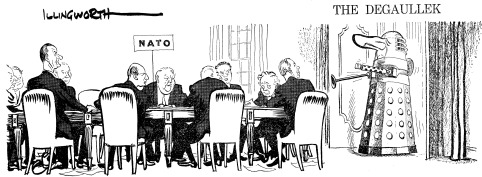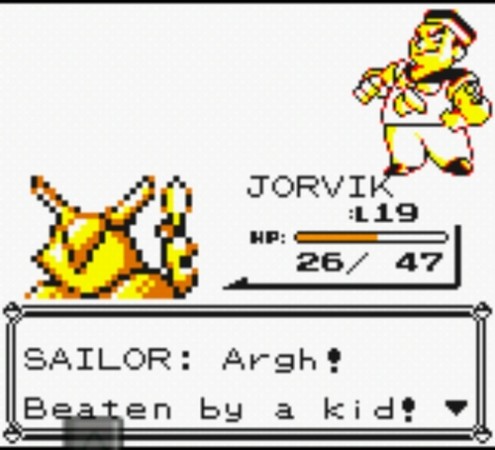Posts from October 2013
11
Oct 13
Time Reconsidered as a Helix of Semi-Precious Who Eps: #18 RESURRECTION OF THE DALEKS
or “Lytton must be exterminated when it is convenient”
… being a show-by-show TARDIS-esque (ie in effect random) exploration of Doctor Who Soup to Nuts, begun at LJ’s diggerdydum community, and crossposted at FT.
 In which 5IVE and disgruntled chums help a revenant but unrepentent DAVROS to infect his multitudinous metal brood with
In which 5IVE and disgruntled chums help a revenant but unrepentent DAVROS to infect his multitudinous metal brood with MORGELLONS the MORVELLAN DISCO VIRUS, as a reward for getting him out of jail. Or something.
[11.10.13: commentary updated below]
A notoriously very-hard-to-follow DO-YOU-SEE allegory for the utter lack of honour among the galactically villainous. Doesn’t help that from the off it’s a switchback of mistaken identity via doubles: meaning that coppers and soldiers and even daleks are not who you immediately think they are. Doesn’t help that I watched it more than a year ago, before various distractions intervened and derailed me, and haven’t revisited (bcz my “method” does not allow me to). So instead of discussing the plot I’m going to bore on abt the Daleks, turning the tables you might say hohoho *sigh*
The setting: two places and two time (Butler’s Wharf and a prison ship in space; 1984 and THE UNSPECIFIED FUTURE ) have been superglued together by a time-corridor. The prison ship is under attack by a space cruiser.
The upshot:
More
10
Oct 13
Going Back To My Routes: Kanto
 “Isn’t technology wonderful?” says one of the inhabitants of Pallet Town, Kanto – your home in Pokémon Blue, and the root of every Pokémon game, and every Pokémon journey, ever since. It’s a statement of outright optimism from the dawn of the mobile gaming era. Mobility – the pocket power of the handheld device – is the central ideal of Pokémon. It’s in the miniaturised creatures your character carries around, and in the Game Boy he and they live on. Throughout all the games, your reality – trading and battling with friends, and latterly just passing strangers by – mingles with the gameworld. Your real journeys criss-cross its routes and cities.
“Isn’t technology wonderful?” says one of the inhabitants of Pallet Town, Kanto – your home in Pokémon Blue, and the root of every Pokémon game, and every Pokémon journey, ever since. It’s a statement of outright optimism from the dawn of the mobile gaming era. Mobility – the pocket power of the handheld device – is the central ideal of Pokémon. It’s in the miniaturised creatures your character carries around, and in the Game Boy he and they live on. Throughout all the games, your reality – trading and battling with friends, and latterly just passing strangers by – mingles with the gameworld. Your real journeys criss-cross its routes and cities.
Pokémon games include magical artefacts, fantastic beasts, haunted towers and psychic powers, but the world of the games is almost always a modern, brisk one. In Pokémon Blue you keep running into technology. Your climactic battle with the larcenous Team Rocket takes place in the region’s most high-tech corporation, you explore a burnt-out research centre, and your reward for becoming champion is a chance to capture the most powerful creature of all – not some ancient or primal force, but a clone in a set of form-fitting mecha-style armour. This constant genre shifting – explore a ghost tower one minute and a modern skyscraper the next, all in the name of adventure – is one of the reasons Pokémon is so beguiling.
 The lion’s share of attention and celebration the games receive go to their creatures and mechanics. The texture of Pokémon – its settings, stories and themes – gets much less love. But as one of the best-selling game franchises of all time, Pokémon is a core part of modern children’s literature – its lands, concepts and ideas as much a fixture in the imagination of its players as Narnia or Hogwarts. They deserve more attention, and these posts – one for each of the game’s six generations – are an attempt to do justice to these fantasy places which have occupied so much of my and my sons’ time.
The lion’s share of attention and celebration the games receive go to their creatures and mechanics. The texture of Pokémon – its settings, stories and themes – gets much less love. But as one of the best-selling game franchises of all time, Pokémon is a core part of modern children’s literature – its lands, concepts and ideas as much a fixture in the imagination of its players as Narnia or Hogwarts. They deserve more attention, and these posts – one for each of the game’s six generations – are an attempt to do justice to these fantasy places which have occupied so much of my and my sons’ time.
More
Going Back To My Routes: Intro
 This is a set of posts about the Pokemon series of games – one long post for each Pokemon generation.
This is a set of posts about the Pokemon series of games – one long post for each Pokemon generation.
I wanted to write about something my sons cared about – pop music doesn’t quite cut it yet. And also I had that critical itch you get when you’ve spent a long time on something, the urge to somehow recoup it through writing.
More
3
Oct 13
MARK MORRISON – “Return Of The Mack”
 British R&B – like UK hip-hop – has tended to suffer credibility issues*. Back in the 50s and 60s, British groups lifted American sounds, but the American originals weren’t easy to find, and the signal could be scrambled in transmission. Productive mishearings ensued: the result, to a great extent, was the story we’ve been telling on this blog. By the mid-90s, things were different. News travelled faster, and production techniques were more transferable – the globalisation of pop apparent in the 21st century was well under way.
British R&B – like UK hip-hop – has tended to suffer credibility issues*. Back in the 50s and 60s, British groups lifted American sounds, but the American originals weren’t easy to find, and the signal could be scrambled in transmission. Productive mishearings ensued: the result, to a great extent, was the story we’ve been telling on this blog. By the mid-90s, things were different. News travelled faster, and production techniques were more transferable – the globalisation of pop apparent in the 21st century was well under way.
But they were also not so different – the British response to modern American music was still, typically, a slightly lead-footed imitation of it, just as it had been 40 years before. It’s the curse of the borrowing culture: you accept conventions as limits. When Britain did manage something more creative or divergent, the hybrid quickly got packaged up into its own genre – trip-hop, or later grime – and the more standard local product lapsed into general adequacy.
More